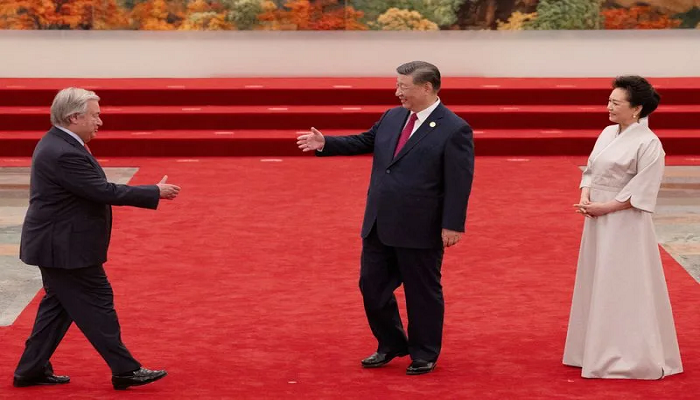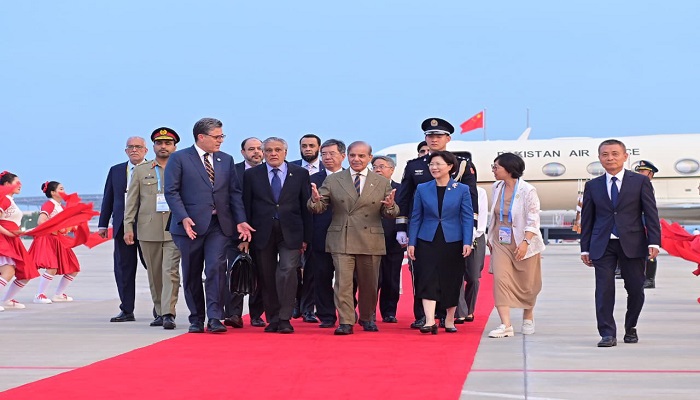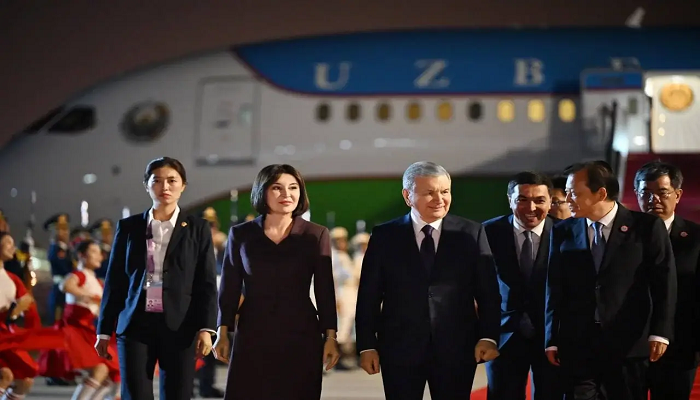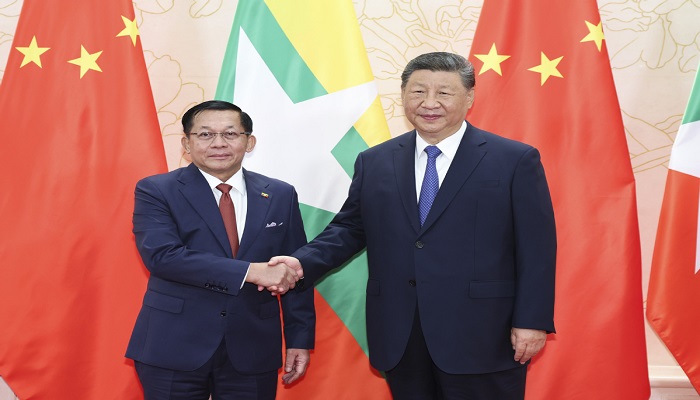The northern Chinese port city of Tianjin has become the epicenter of high-level diplomatic engagement this weekend, as leaders from more than 20 nations gather for the 25th Heads of State Council Summit of the Shanghai Cooperation Organization (SCO).
Under the chairmanship of Chinese President Xi Jinping, the summit signals a powerful show of Global South solidarity and comes amid escalating global geopolitical tensions.
The summit, which kicked off today, August 31, and will continue through September 1, brings together heads of state and government from SCO member countries including China, Russia, India, Pakistan, Iran, Kazakhstan, Kyrgyzstan, Tajikistan, Uzbekistan, and Belarus along with leaders from observer and dialogue partner nations such as Türkiye, Myanmar, Egypt, Cambodia, and Mongolia.
United Nations Secretary-General António Guterres is also in attendance, alongside representatives from ten international organizations.
Hosting his fifth SCO summit, President Xi Jinping opened the weekend by reaffirming China’s commitment to “true multilateralism” and supporting the United Nations in playing a central role in global affairs. In a meeting with Secretary-General Guterres, Xi emphasized China’s backing for global peace and cooperation, describing the SCO as a stabilizing force amid a turbulent international landscape.

President Xi also held bilateral meetings with multiple leaders on the summit’s sidelines. In a notable move, he pledged support for Myanmar’s efforts to become a full member of the SCO during talks with Myanmar junta chief Min Aung Hlaing.
Xi voiced support for Myanmar’s path to political reconciliation and national development, signaling China’s continued backing of its Southeast Asian neighbor.
Prime Minister Shehbaz Sharif of Pakistan arrived in Tianjin leading a high-level delegation including Deputy Prime Minister Ishaq Dar and Information Minister Attaullah Tarar. Terming his visit “historic,” Sharif announced the formal launch of Phase-II of the multi-billion-dollar China-Pakistan Economic Corridor (CPEC), a flagship project under China’s Belt and Road Initiative (BRI), delayed for nearly five years.

According to Pakistan’s Foreign Office, Phase-II of CPEC will emphasize industrial cooperation, agricultural technology, and sustainable development. Prime Minister Sharif is scheduled to meet President Xi and Premier Li Qiang in Beijing, and will attend a military parade commemorating the 80th anniversary of the World Anti-Fascist War. He will also engage with Chinese investors at a Pakistan-China B2B Investment Conference.
Pakistan and China Vow to Fast-Track Development, Crush Misinformation
Sharif is expected to present Pakistan’s stance on pressing regional and global issues during the summit, reaffirming the country’s commitment to multilateralism, regional security, and economic integration through the SCO platform.
In a rare diplomatic moment, Indian Prime Minister Narendra Modi also arrived in Tianjin, his first visit to China since 2018. Modi’s participation comes amid a cautious thaw in Sino-Indian ties, following the deadly border clashes in 2020. The two leaders last met in October last year on the sidelines of a summit in Russia, signaling a potential softening of hostilities.

Modi’s appearance at the SCO comes at a diplomatically sensitive time. According to The New York Times, as cited by The Times of India, U.S. President Donald Trump has “no longer any plans” to visit India later this year for the Quad Summit, reportedly due to a deterioration in his relationship with Prime Minister Modi. While neither Washington nor New Delhi has officially confirmed or denied the cancellation, it has sparked speculation about potential cracks in US–India ties and the future direction of the Quad alliance.
India remains a key member of the SCO, though its participation often reflects its strategic balancing act between the West and emerging Eurasian powers.
Russian President Vladimir Putin arrived in Tianjin ahead of Monday’s summit session. The Kremlin confirmed that Putin will hold critical talks with Turkish President Recep Tayyip Erdogan to discuss the ongoing war in Ukraine. Turkiye has hosted multiple rounds of peace talks between Kyiv and Moscow this year, though none have yielded a breakthrough.
China’s Iranian Oil Imports Surge in June Amid Rising Teapot Refinery Demand
Putin will also meet Iranian President Masoud Pezeshkian on Monday to discuss Tehran’s nuclear program. The meeting comes amid new Western efforts to reimpose UN sanctions on Iran for allegedly violating the 2015 nuclear agreement, a move Russia has strongly opposed, warning of “irreparable consequences.”
Turkish President Erdogan, attending the summit as a guest of honor, is also slated to meet with President Xi and other leaders. According to Turkish officials, Erdogan will deliver an address during the summit’s expanded format session and discuss deepening regional ties and economic cooperation.

Uzbek President Shavkat Mirziyoyev arrived on Saturday evening and is expected to reinforce Uzbekistan’s founding role within the SCO. In January, China and Uzbekistan elevated their relationship to an “all-weather strategic partnership for a new era.”

Leaders from several other Asian nations including Cambodia, Nepal, and the Maldives are also attending, highlighting the summit’s broad regional reach and the growing role of the SCO as a counterweight to Western alliances like NATO and the G7.
Turkey and China Renew Currency Swap Agreement Amid Updated Exchange Rates
China’s inclusive diplomatic approach was on display with the participation of Myanmar’s Senior General Min Aung Hlaing, reflecting Beijing’s commitment to engaging all regional partners in pursuit of peace, stability, and development.

Emphasizing the SCO’s founding principle of non-interference in internal affairs, China has advocated for Myanmar’s deeper integration into regional frameworks to foster long-term political reconciliation and economic cooperation.
Iran’s participation under President Masoud Pezeshkian further underscores the SCO’s role as a vital platform for dialogue and partnership among countries facing global challenges. With the support of key members like China and Russia, Iran is expected to contribute to discussions on multilateral cooperation, regional security, and energy collaboration, reinforcing the SCO’s importance as a pillar of a more balanced and multipolar international order.
With expanding membership and a widening geopolitical footprint, the Shanghai Cooperation Organization continues to evolve as a key pillar of the emerging multipolar world order. Founded in 2001, the SCO has grown from a Central Asian security bloc into a major platform for economic, political, and military cooperation among Eurasian and Global South nations.
Foreign Minister Ishaq Dar of Pakistan summed up the growing relevance of the SCO, calling it a “pivotal Eurasian platform advancing cooperation in security, trade, energy, connectivity, and culture under principles of mutual trust and shared development.”
As the summit unfolds, world leaders will hold numerous bilateral meetings, aiming to deepen cooperation, mitigate conflicts, and articulate shared visions for regional integration and global peace.



